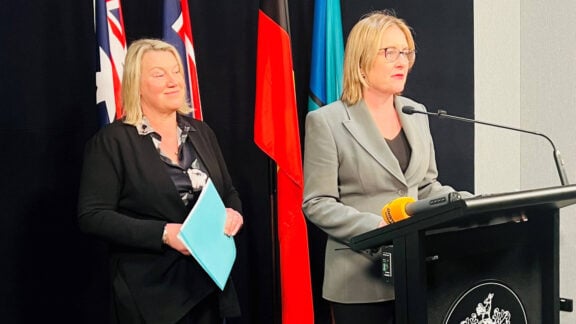The Government has passed legislation to give more migrants access to more free English language classes.
The reforms in the Immigration (Education) Amendment (Expanding Access to English Tuition) Bill 2020 remove the 510-hour limit on a person’s tuition entitlement and raise the upper limit for AMEP eligibility from functional to vocational English. Time limits for commencement and completion of tuition will also be removed for migrants who first arrived in Australia on or before 1 October 2020.
The tabled changes are the first part in a three-part plan to make English tuition more accessible to migrants in the hope that better quality outcomes and increased participation can be achieved.
Acting Minister for Immigration, Citizenship, Migrant Services and Multicultural Affairs Alan Tudge said English is fundamental to a person’s success in Australia.
“Without English, it is harder to get a job, harder to be an active member of the community, and harder to participate in our democratic processes,” Mr Tudge said.
“Only 13 per cent of those with no English skills are in work compared to 62 per cent of those who speak English well.
“Migrants with no English skills are also more vulnerable to fall victim to foreign interference and misinformation, and will likely find it harder to seek help if they are a victim of family violence or exploitation.
“Like all Australians, the Morrison Government wants migrants to be able to take advantage of all the opportunities Australia offers and these reforms will help achieve this goal.
“The reforms mean that most migrants regardless of when they arrived can access free English language classes and attend for as many hours as necessary.”
READ MORE: Interpreters and the Victorian Government speak the same language
AMEP providers integrate settlement skills into their tuition programs, including how to access government and community services, banking, medical assistance and emergency services, as well as understanding Australian law and their rights.
The Government has also committed to making the AMEP more flexible to help those who are working or have caring responsibilities, including mothers. These changes may include better use of technology, online classes and on-the-job learning.
Government will work closely with English language providers to ensure these reforms improve quality and results, by linking funding directly to outcomes.
Based on recent trends there is close to a million people in Australia who do not speak English well or at all – with about half of those being of working age.
The AMEP, which is managed by the Department of Home Affairs, is currently delivered nationally across 58 regions by 13 contracted registered training organisations. Migrants with low levels of English are encouraged to contact their local AMEP training organisation to find out about their eligibility and access to English classes.
READ MORE: Backlash against English language test for partner visas continues
More information on the Adult Migrant English Program is available on the Department of Home Affairs website www.homeaffairs.gov.au/amep









